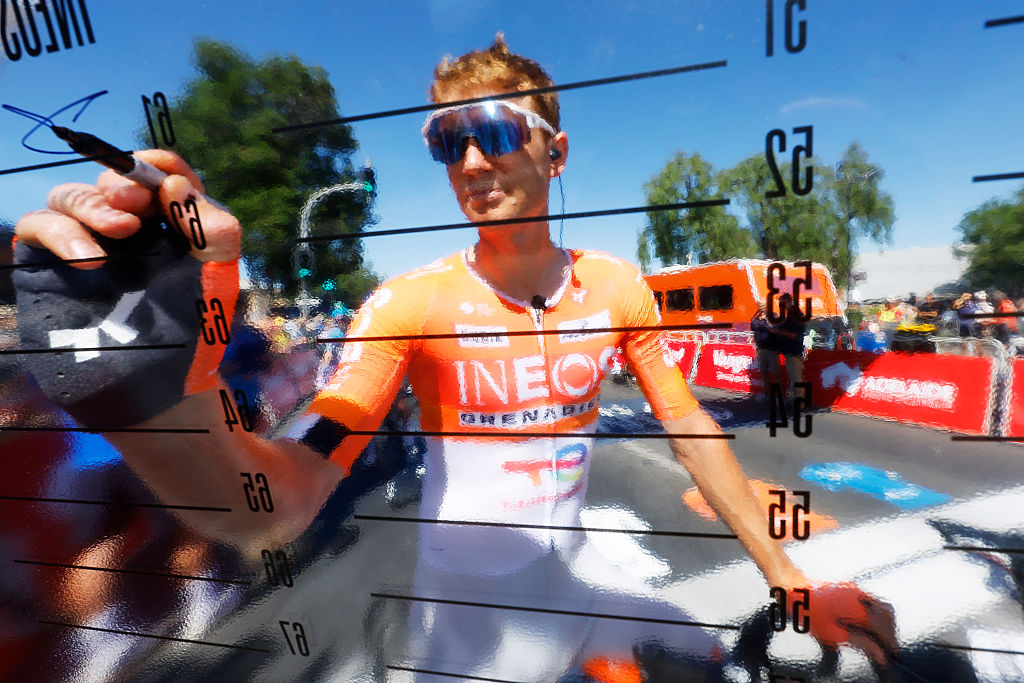Vuelta a España 2022 – Analysing the contenders
We rank the form of the top favourites entering the middle week of the Spanish Grand Tour
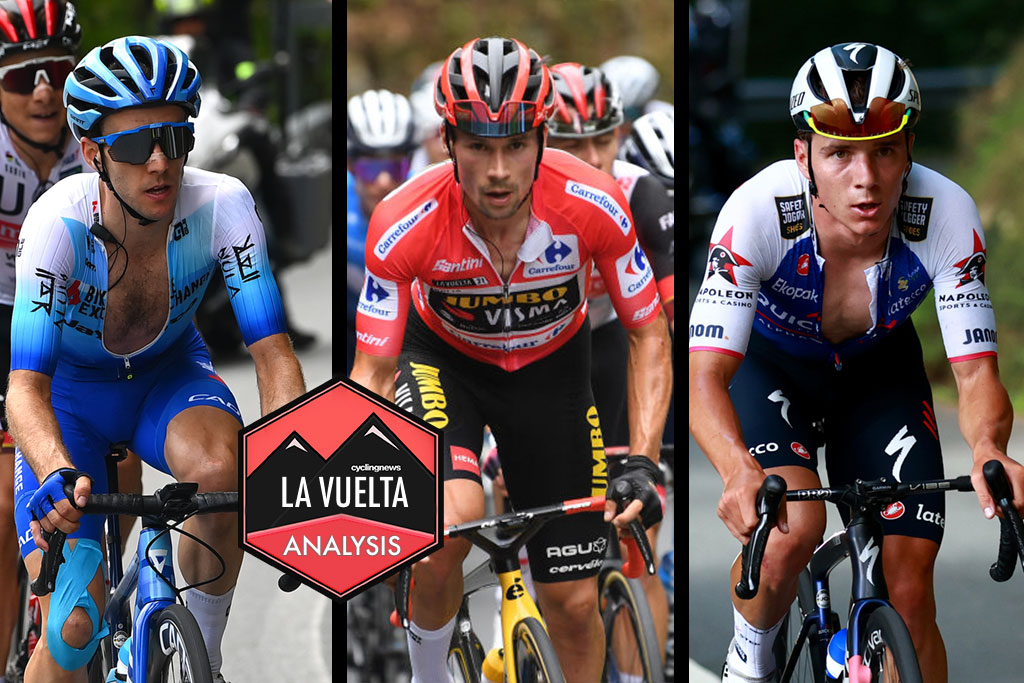
The latest race content, interviews, features, reviews and expert buying guides, direct to your inbox!
You are now subscribed
Your newsletter sign-up was successful
The Vuelta a España is now nine stages old, and the hunt for the overall victory has well and truly begun.
Vuelta debutant Remco Evenepoel has shown he is the man to beat after a strong week in which he overcame all significant challenges to emerge the early leader.
Movistar's Enric Mas has put in a strong performance so far, and currently sits 1:12 behind the young Belgian.
Three-time champion Primož Roglič has performed well after an uncertain build-up to the race following his injury at the Tour de France. Despite his team's early domination in the race, the Slovenian now lies 1:53 back on GC.
Other contenders, including 2018 winner Simon Yates and this year's Giro winner Jai Hindley, among others, find themselves with more work to do, less than halfway through the final Grand Tour of 2022.
Here, Cyclingnews takes a look at the principal pretenders to the red jersey and picks apart their form and chances after nine stages of racing. The ordering of riders does not necessarily reflect likelihood of overall success but rather was our barometer of form at this point in race.
1. Remco Evenepoel (QuickStep-AlphaVinyl)
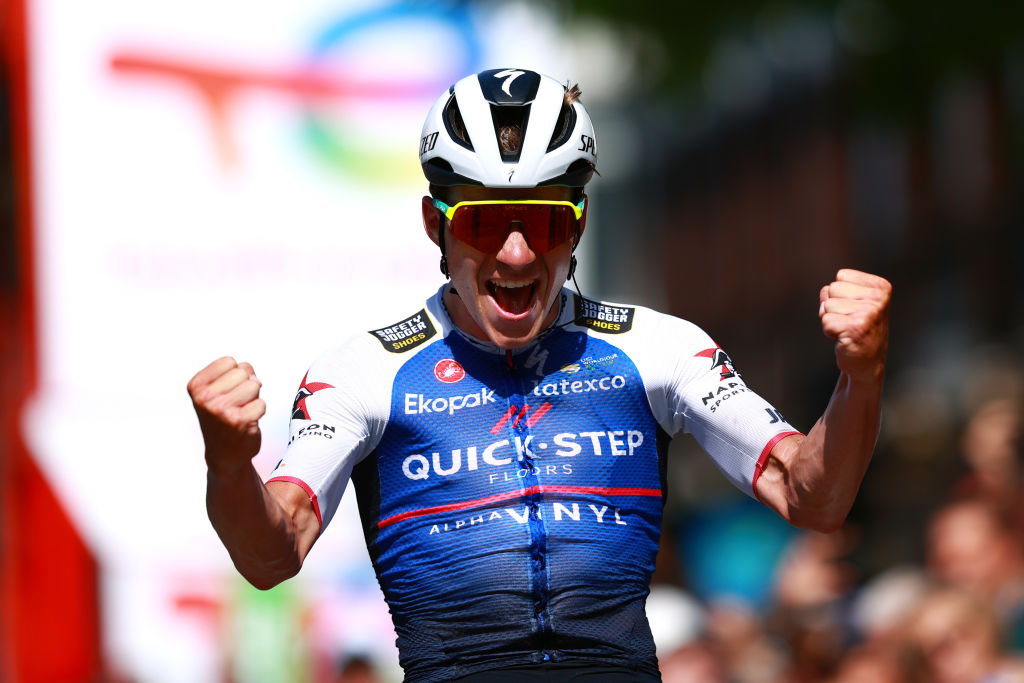
Remco Evenepoel has so far delivered the level of quality that the fans and media in his home country of Belgium have long been lauding, leading to him taking the red jersey on the ascent of the Pico Jano on Stage 6, and keeping it ever since.
The latest race content, interviews, features, reviews and expert buying guides, direct to your inbox!
The 22-year-old had only ridden one Grand Tour previously, which he did not finish. Expectation and excitement – some would say excessive amounts of both – have continued to follow him since his extraordinary rise as a junior just a few years ago, and so far at La Vuelta, he's proving exactly why.
Following a resounding victory at the recent Clásica San Sebastián, Evenepoel has continued in his rich vein of form, which has seen him win several week-long stage races this year, including Vuelta a Burgos and most recently the Tour of Norway.
Evenepoel was on a seemingly upward trajectory ahead of the Vuelta, with two big training camps completed either side of his San Sebastián victory. And it was that victory that earned him top spot on our form ranking (which is not necessarily a ranking of overall chances).
The key question remains whether or not he can back it up for 21 consecutive stages, but if he is able to maintain his current level, with the time gap he has already amassed over his rivals, he will be impossible to beat.
2. Primož Roglič (Jumbo-Visma)
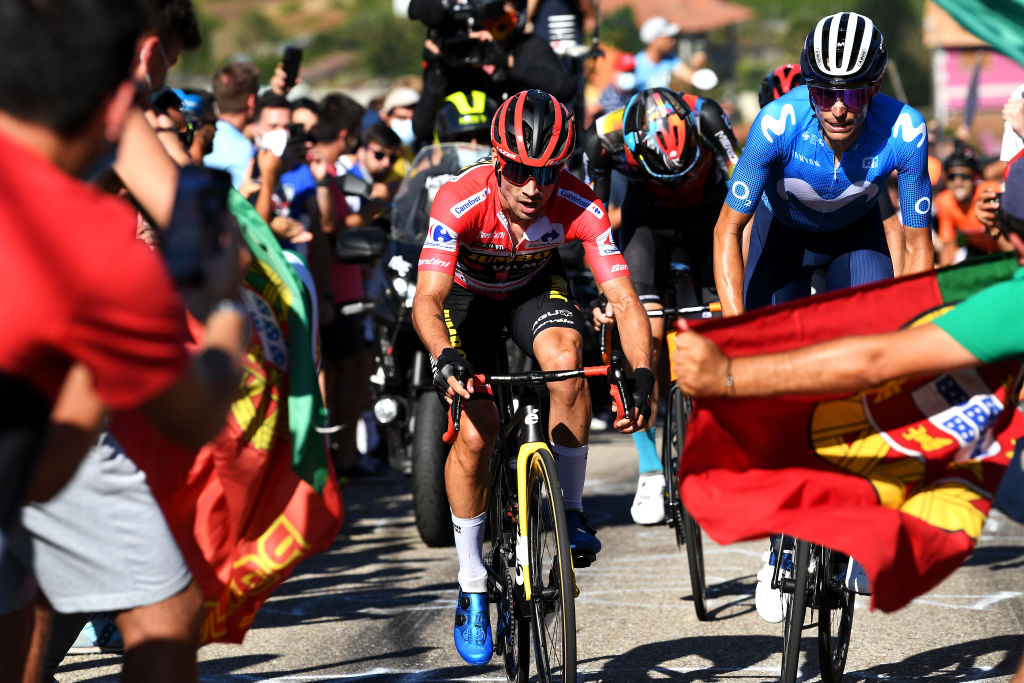
While Primož Roglič was top of the pile in terms of GC contenders following the Gran Salida in the Netherlands, the Slovenian's form has still to be fully proven, following his injury at the Tour de France.
Roglič left the Tour after 14 stages, his yellow jersey dreams ending on the unforgiving cobbled stage – or more specifically and cruelly, on an errant haybale. He fought on and helped lure Tadej Pogačar into the high-Alpine trap that would pave the way to overall victory for his teammate Jonas Vingegaard, but wasn't able to be there as the job was finished.
Roglič, who spoke of intense back pain, underwent physiotherapy and only started riding again a week before the Vuelta. So far, he has ridden well, without showing his usual ruthless form, maintaining a steady level as he, presumably, tests his body's limits and paces himself ahead of a long battle.
His chances have been dented somewhat by the loss of one of his key mountain lieutenants, Sepp Kuss, who did not start Stage 8 due to ill health, and Chris Harper suffering a crash later the same day.
Roglič is the winner of the past three editions of the Spanish Grand Tour and has the chance to tie Roberto Heras for the record on four titles as well as becoming the first rider since Miguel Indurain to win a Grand Tour four times on the trot. His three wins in the past three years have all been redemption tales after previous setbacks. A fourth would top the lot, but if he is to challenge for the top spot, he may have to go it alone on the toughest terrain.
Roglič currently sits in 3rd position on GC, 1:53 behind Remco Evenepoel.
3. Enric Mas (Movistar)
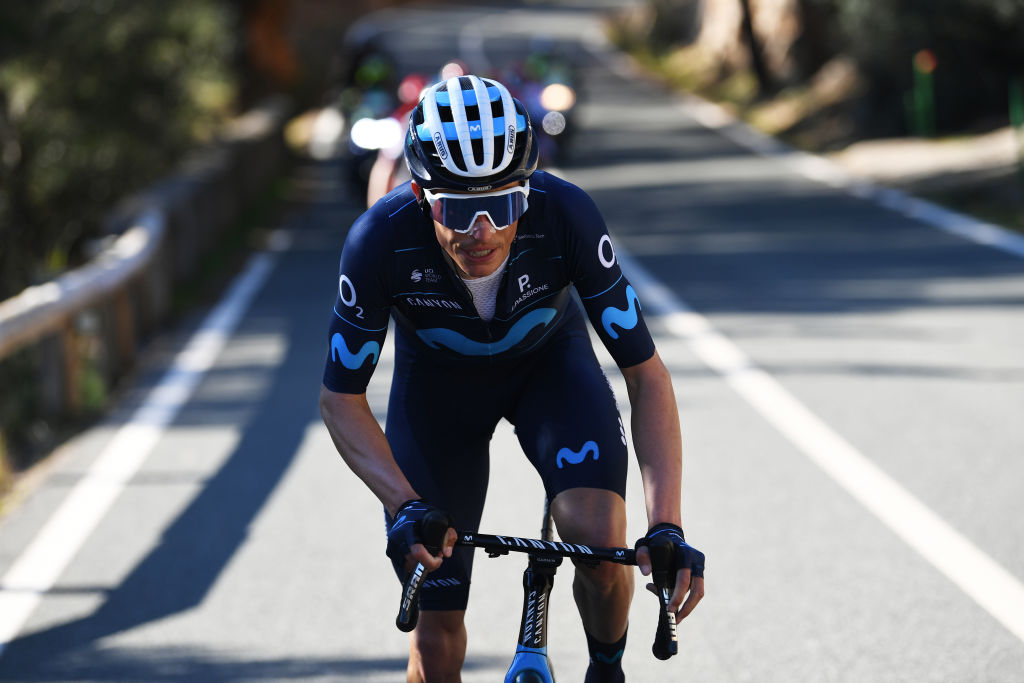
The Spaniard had a Tour to forget. There were one or two bright moments, such as on Alpe d'Huez, but there were more dark days such as the pivotal Col du Granon, a loss of confidence going downhill, and ultimately a COVID-19 infection that took him out with three stages remaining.
That outcome was a blow for Mas but also a kick in the teeth for his team, who need every UCI ranking point they can get in their bid to avoid WorldTour relegation. In that respect, they really do need Mas in shape at the Vuelta. They've got their old talisman Alejandro Valverde but a high GC result is what will really help lift them away from danger.
Prior to his travails at the Tour, Mas had had a solid start to life at Movistar, with 5th at both the Tour and Vuelta in 2020 followed by 6th and 2nd last year. With form unknown and confidence low – and not helped by his boss' recent questioning of his leadership skills – he faced a big challenge to rediscover that level, but in a race that favours his style, he has really shown his best so far this year.
Mas has been one of the only riders capable of staying with Evenepoel so far, and although he may lose time on Tuesday's time trial, he has proven his form over three weeks in the past, unlike his young Belgian rival.
Mas could pull off a miracle for Movistar if he's able to maintain his strong form. He is currently 2nd in the standings, 1:12 behind Evenepoel.
4. Simon Yates (BikeExchange-Jayco)

Yates has had a good start to this year's Vuelta, riding solidly throughout without setting the race alight.
The British rider looked to have been flying high but the gloss was taken off his pre-Vuelta form by Evenepoel's exhibition at San Sebastián. He was the one who clung to the Belgian's wheel for longest but had to relent and perhaps paid the price as he slipped to sixth place, more than three minutes down. Prior to that, however, Yates had impressed on his comeback from the Giro d'Italia with three wins in four days, taking out the Ordiziako Klasika before a stage and the overall at the Vuelta a Castilla y Leon.
Yates had a strong start to the year and looked a major favourite for the Giro when he won the stage 2 time trial, only to come down with a knee injury at another ill-fated appearance at the Italian Grand Tour, even if he fought back to win a stage. Yates abandoned the Giro on stage 17 and, after his knee injury kept him out of the Tour de France, he has taken time to recover and get himself into the sort of shape that makes him a key contender for the red jersey.
Yates has won the Vuelta, and with an explosive climbing style and improvements against the clock that have seen him win major time trials, he might have hoped to win again. His Vuelta win apart, he hasn't always managed – for one reason or another – to piece together the full three-week puzzle and managing his efforts, as well as staying injury and illness-free, might just be key.
However, despite a solid performance so far, Yates is currently in 6th position, 3:08 down on Evenepoel, and he will need to show something seriously special if he wants to trouble the young Belgian's lead.
5. João Almeida (UAE Team Emirates)
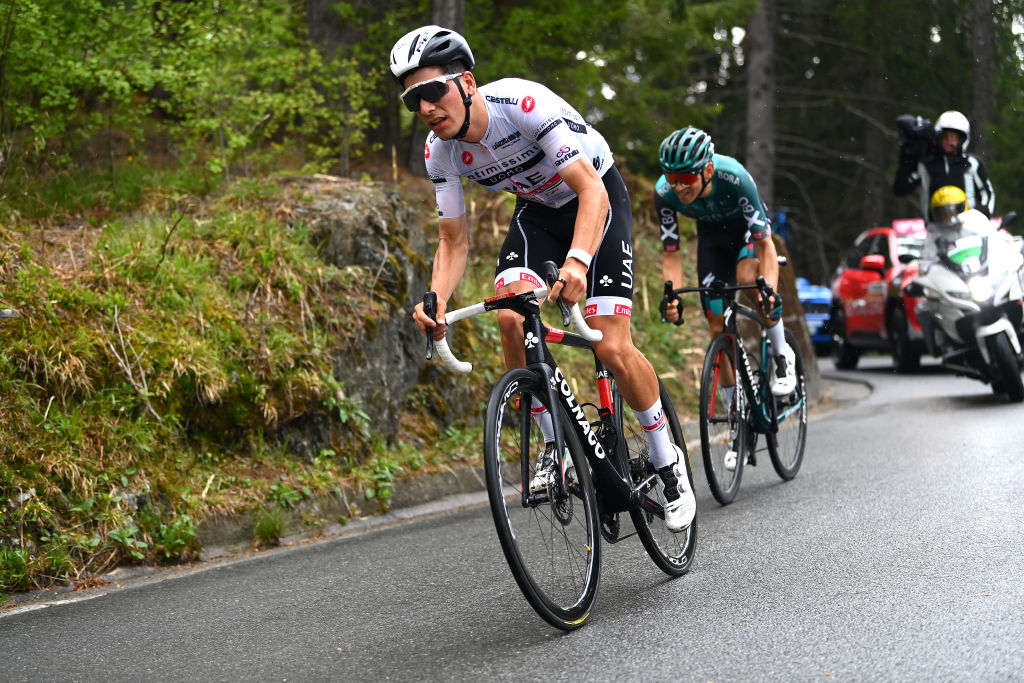
With nine stages of this year's Vuelta complete, it's still unclear who the overall leader for UAE Team Emirates is, as both Almeida and team mate Juan Ayuso have put in good performances.
Almeida had said before the start that he didn't feel on top form heading into the race, but he is riding well so far - although it could be argued, not quite as well as the young Spaniard, who is currently in 5th after a brilliant first week.
The 24-year-old is another rider whose Giro started brightly but ended in disappointment, as he entered the final week third overall but soon left the race with COVID-19.
Almeida, who has finished fifth in the UAE Tour, 8th in Paris-Nice, and 3rd at Volta a Catalunya this season, won the Portuguese road race title in June as he began his build-up to the Vuelta. He didn't finish San Sebastián but did win the final stage of the Vuelta a Burgos, propelling him to second overall.
Another rider on this list, Pavel Sivakov, may have won the race outright, but Almeida took a higher spot on our list for his season's form and his victory on the Lagunas de Neila summit finish, arguably a truer test of raw form than the stage 3 finale where Sivakov managed to gain time.
Almeida is an all-rounder who can time trial as well as climb, and he's growing in Grand Tour experience. So far he's only done the Giro, enjoying his breakthrough in 2020 that saw him in pink for a long stint before slipping to fourth under the assault of Ineos Grenadiers and Tao Geoghegan Hart. Then last year he went in alongside Evenepoel at QuickStep in a slightly tense leadership duo and finished sixth overall.
This year, Almeida continues to put in consistent performances, and currently sits in 7th position, 4:32 down on the leader. With a number of other strong contenders in the race, including his own team mate, he will have to make a marked improvement in order to make an impression on the top 3.
6. Sergio Higuita (Bora-Hansgrohe)
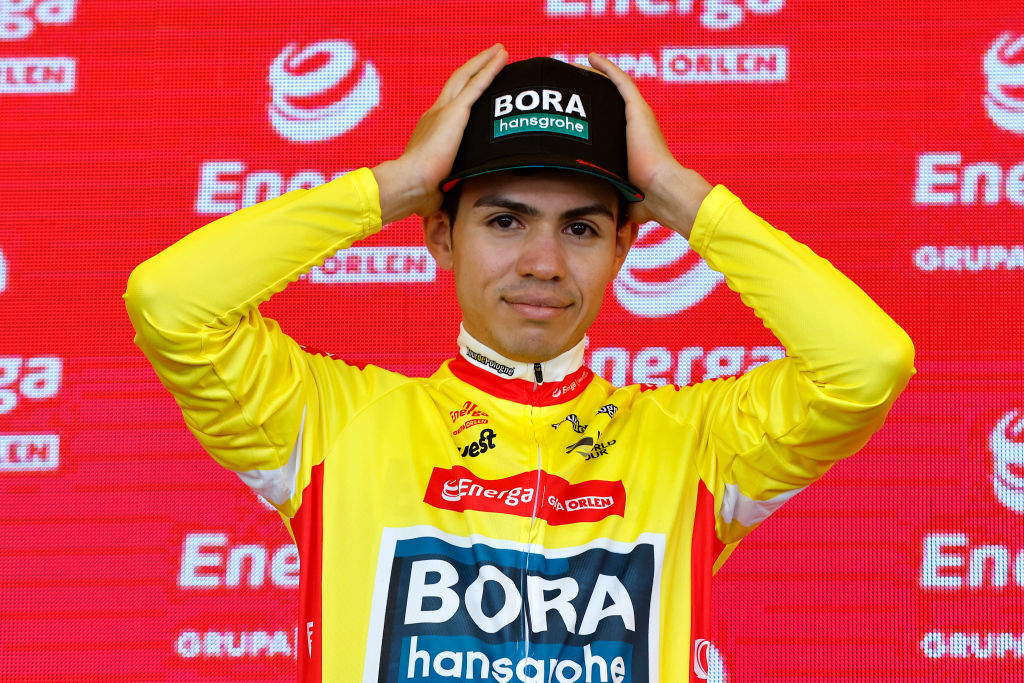
The diminutive Colombian had an eye-catching first few years as a professional but has taken a big stride forward this year after joining Bora-Hansgrohe. Previously more of a puncheur, he now has GC ambitions and is spoken about in serious terms as a leader for this Vuelta, even in a team that contains the current Giro d'Italia champion, Jai HIndley.
Higuita, who finished 14th at the 2019 Vuelta on his Grand Tour debut, has had a storming season, winning the Volta a Catalunya and finishing runner-up at the Tour de Suisse. He has also won stages at the Tour de Romandie, Volta ao Algarve, and Tour de Pologne, as well as clinching the Colombian title and placing fifth at Liège-Bastogne-Liège.
However, he's struggled so far at this year's Vuelta. He has not shown his best climbing form and team mates Jai Hindley and Wilco Kelderman both currently look like better bets for the team going forward.
With nine stages down, Higuita is in 21st position, 9:45 down on the lead, and he may opt for stage hunting later in the race, if he is feeling better.
7. Jai Hindley (Bora-Hansgrohe)
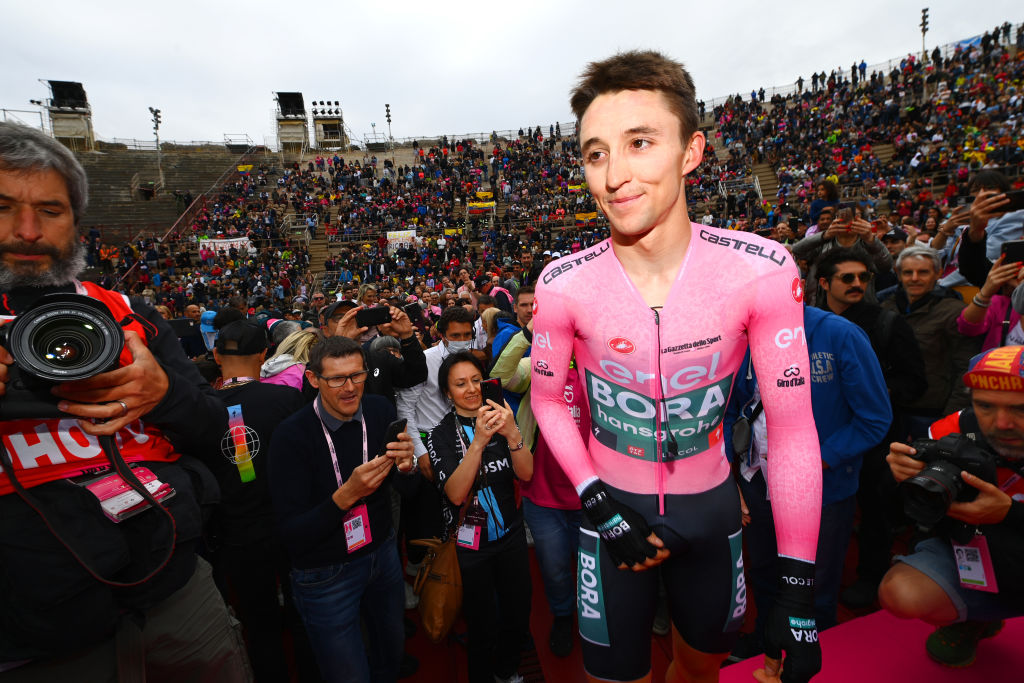
Higuita might have the more eye-catching form of late, but Hindley is the more tried and trusted weapon in a Bora-Hansgrohe arsenal that also contains Wilco Kelderman. They rival Ineos for the strongest team unit in the race and have already spoken about a multi-leader approach that could lead to creative racing tactics from the German squad.
Hindley had a year to forget after his breakthrough Giro podium in 2020 but has roared back this season and put himself among the pantheon of Grand Tour champions in Italy. His ability to stay the course once again stood out. There was little extravagance about his Giro victory but his disposal of Richard Carapaz on the final mountain of the race was nevertheless a stunning moment.
He has only returned from that triumph in the past fortnight, after a two-month absence from racing. He didn't finish the Clásica San Sebastián but did place 13th at Circuit Getxo and seventh overall at Vuelta a Burgos. Nothing spectacular but enough to suggest he's on the right track.
He's had a solid start to La Vuelta, working his way up the GC standings as he rides himself into the race. He currently sits in 9th, 5:36 down on the race lead, and will need to pull off a few climbing performances reminiscent of his ride on Marmolada at the Giro if he wants to rise through the ranks in what remains of the race.
8. Mikel Landa (Bahrain Victorious)
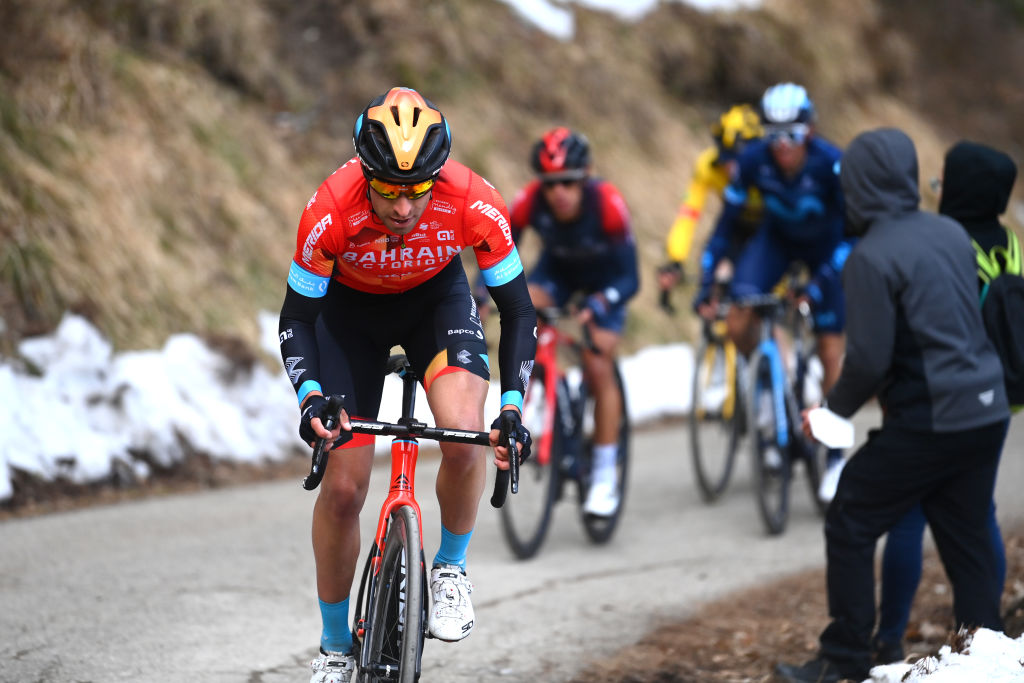
The perennial Spanish hope and almost comedic and cult-status nearly-man heads to the Vuelta off the back of his podium at the Giro – the second of a Grand Tour career that has also seen two fourth-placed finishes at the Tour de France.
Landa, though, has never hit those heights at his home Grand Tour. Not that he's had the chance to. Last year, which ended in heartbreak after an early crash, was his first appearance since 2015, the year of his breakthrough.
Landa's rollercoaster career of hope and disappointment has continued since then and he has always maintained he has a Grand Tour victory in him. Circumstances have often conspired against him but he had as clean a run as any at the Giro. He was rewarded with the podium but couldn't match Hindley or Carapaz to lay any real claim to the pink jersey.
Where that leaves his future prospects is, as ever, unclear. Landa returned to racing with 44th place at Burgos, way off the pace of many others on this list.
He stated prior to the race that he wasn't planning on contending on GC and he has followed through on that promise, dropping time early in the race and showing himself in a couple of breakaways since. He is up against stiff competition though, if he wants to add a second Vuelta stage win to his palmares - the last one came back in 2015.
9. Pavel Sivakov (Ineos Grenadiers)
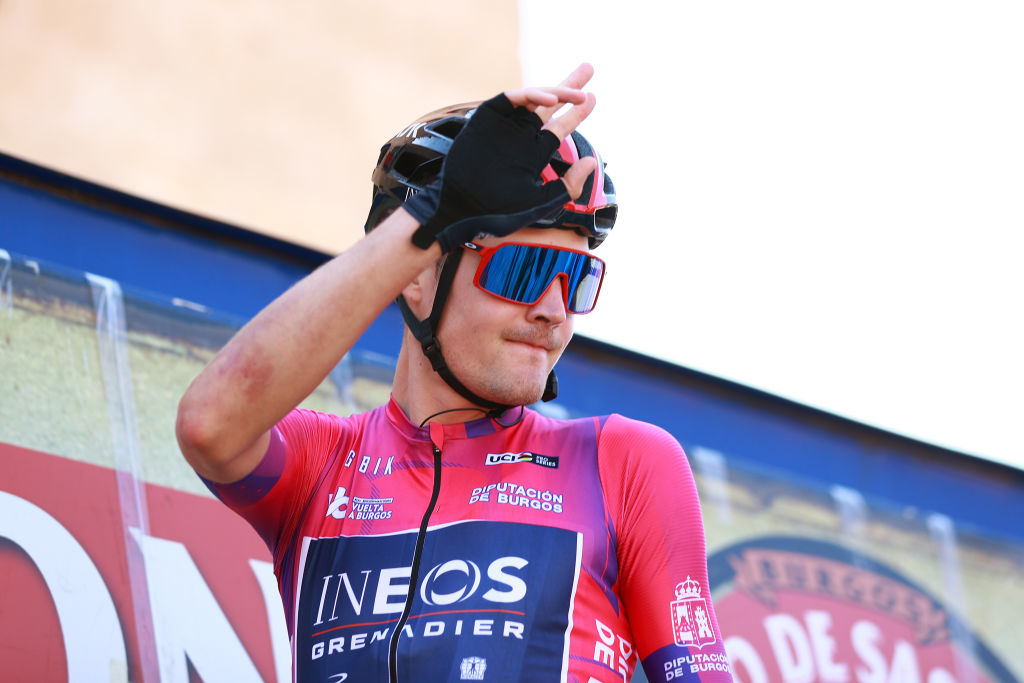
Sivakov might slip in just under Almeida but his victory in Burgos was no fluke. Indeed, he's been one of the standout riders of the past couple of weeks, also placing second at San Sebastián.
Richard Carapaz, former Giro winner and Vuelta runner-up, is Ineos' leading candidate in terms of pedigree but hasn't hit any high notes in recent races. The youngster Carlos Rodríguez has been tipped as a breakout star as he heads for his Grand Tour debut, but it's Sivakov who could prove to be the best plan-B or even co-leader for Ineos.
The pair rode together in pursuit of Evenepoel at San Sebastián and Sivakov underlined his form at Burgos, which was the third stage race success of his career. The foundations were laid with his long-range attack on stage 3 and he was distance but hung onto the overall crown at Lagunas de Neila. Sivakov was a dominant figure on the U23 circuit in 2017 and appeared to be on the cusp of a breakthrough in 2019, but hasn't had the smoothest couple of years. Still only 25, he has more potential, and he has shown flashes of it at times so far at this Vuelta, bouncing around the lower end of the top ten, following the poor performance of Richard Carapaz.
Ineos still have Tao Geoghegan-Hart and Carlos Rodriguez as potential leaders and so far, both have proven they are in slightly better shape than Sivakov, but there's not much in it.
Sivakov is currently in 10th spot, 5:39 down on the leader.
10. Richard Carapaz (Ineos Grenadiers)
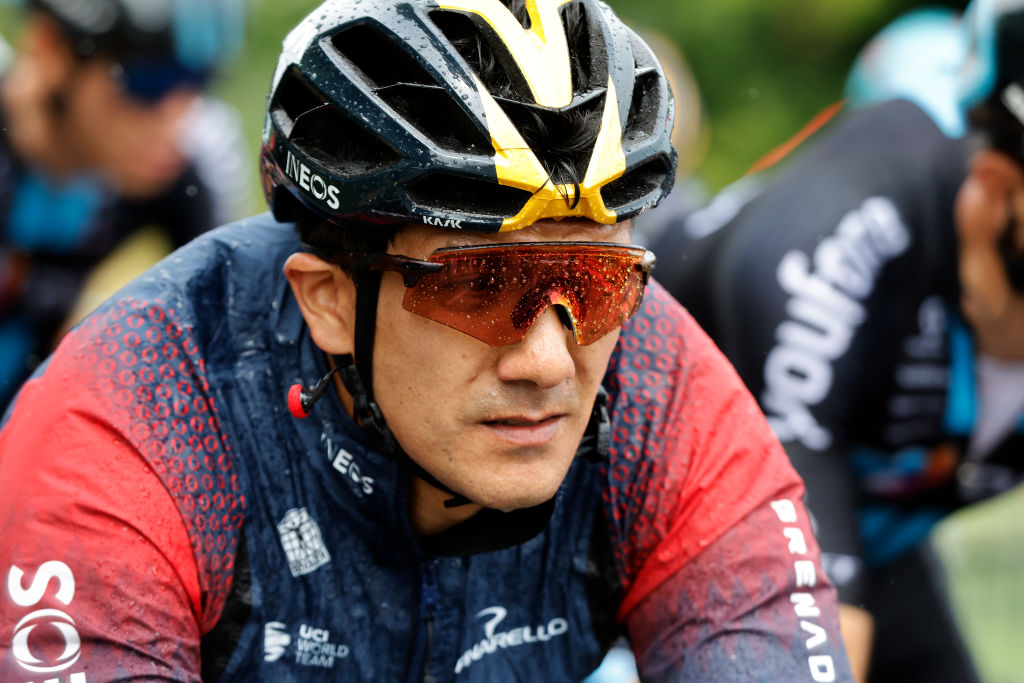
The Ecuadorian is the highest-pedigree Grand Tour rider on the Vuelta start list. After winning the Giro in 2019, he has struck three podiums in three years with Ineos Grenadiers, one in each of the three-week races. This year he went for the Giro and took pink into the final mountain stage, only to come undone on the steep upper pitches to the Passo Fedaia. It was a rare moment of real weakness, but Carapaz remains a composed and consistent Grand Tour campaigner with one of the strongest squads behind him.
After a lengthy post-Giro break, he returned to racing at the end of July and start of August at the Tour de Pologne, where he rode to an anonymous 22nd place. With the time trial the only truly decisive GC stage, Carapaz could afford a quiet week as his teammate Ethan Hayter led Ineos to the overall title. Still, he was far from convincing on the punchy finish on stage 3. Ineos set it up but he could only slip back as other riders surged up in the final 200 metres, with Higuita winning the stage.
Carapaz' unconvincing form continues at La Vuelta. He has dropped away on all the major climbs so far, leaving his younger team mates to rise in the GC standings in his absence.
He currently languishes over 14 minutes off the overall pace, effectively ruling himself out of the GC contest altogether. Carapaz - who was revealed to be signing for EF earlier this month - may go for stages later in the race, if he finds his climbing legs again.
11. Miguel Ángel López (Astana Qazaqstan)
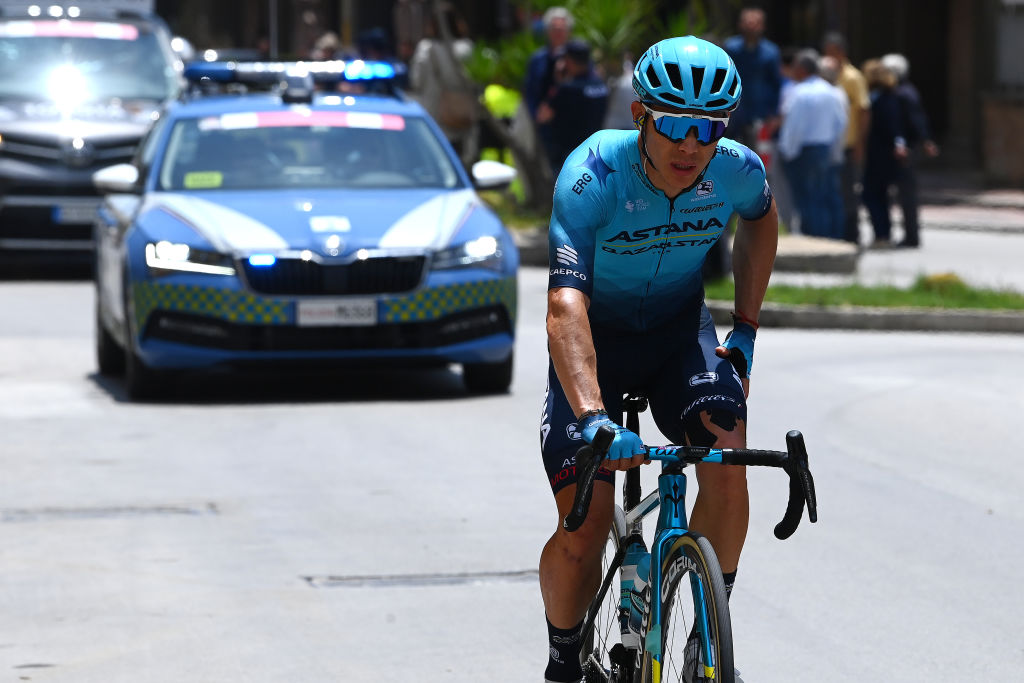
The Colombian climber has had a rollercoaster career to date and he returns to the Vuelta after his extraordinary walk-out exit on the penultimate stage of last year's race, which saw his contract with Movistar terminated. Now back at Astana, there has been more turbulence, his Giro bid ending on stage 4 through a knee injury, and then his name appearing in an anti-doping investigation into a Spanish doctor. López was provisionally suspended by his team but then reinstated because they were "not in a position to further deprive the rider of his contractual rights" given the lack of evidence at that point.
López therefore returned to action at the Vuelta a Burgos, where he was pipped to the line at the summit of Lagunas de Neila by Almeida. Still, it was a strong climbing performance that netted him a place on the final podium and signalled his readiness for the Vuelta.
López remains a world-class climber who has won monumental stages at the Vuelta and Tour but his consistency has been thrown into question. Quite apart from his at-times disastrous time trialling, he has gone from six straight top-8 finishes in Grand Tours – including two podiums – to DNFs at his past four.
It's taken López a while to ride himself into this Vuelta, but after nine stages, he's finally cracked the top ten, and sits in 8th, 5:03 off the pace of Evenepoel. If he can hold his nerve and repeat his success in the Sierra Nevada next Sunday, he might be able to go one better and crack the podium.
12. Ben O'Connor (AG2R Citroën)
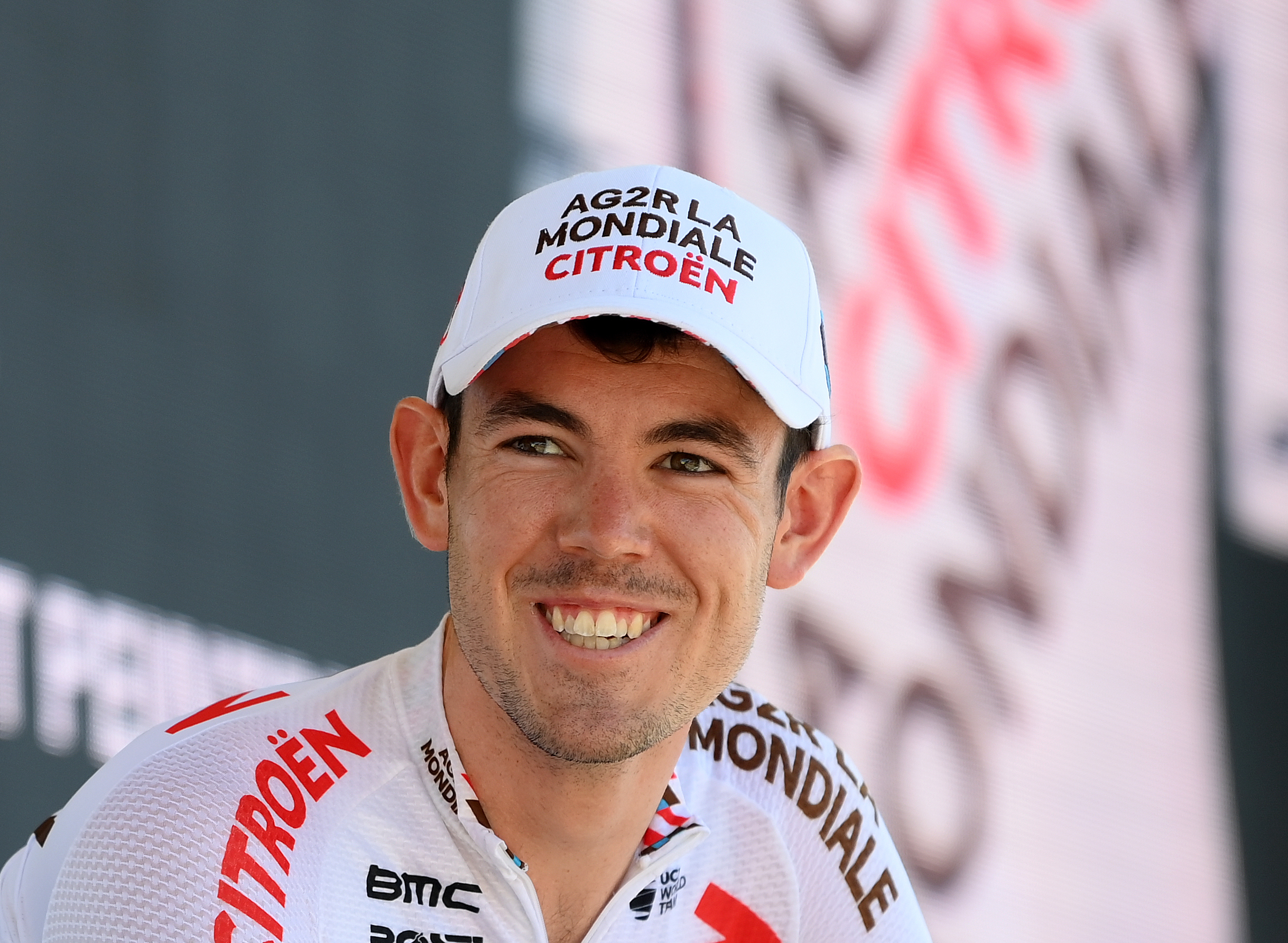
The Australian breathed new life into his career with fourth overall at the 2021 Tour de France but his follow-up this year never got going, with early crashes forcing him to pull out after the first week. The advantage O'Connor has over some in this section is that he pulled out relatively early in the Tour, giving himself more time to reset physically and mentally for the Vuelta.
As such, his team are tentative about his ambitions but have nevertheless clearly outlined him as their general classification leader. If he can recapture some of the early-season form that built on the momentum of his 2021 Tour – with sixth place at Catalunya, 5th at Romandie, and third at the Dauphiné – then O'Connor can very much be part of the conversation.
O'Connor has improved as the race has gone on, entering the top ten for the first time after Stage 8, although he dropped back out of it on Stage 9 and currently sits in 13th, 5:53 down on the race lead. He'll need a performance matching that of Stage 9 in the 2021 Tour to have any hope of pushing for a podium spot.
13. Hugh Carthy (EF Education-EasyPost)
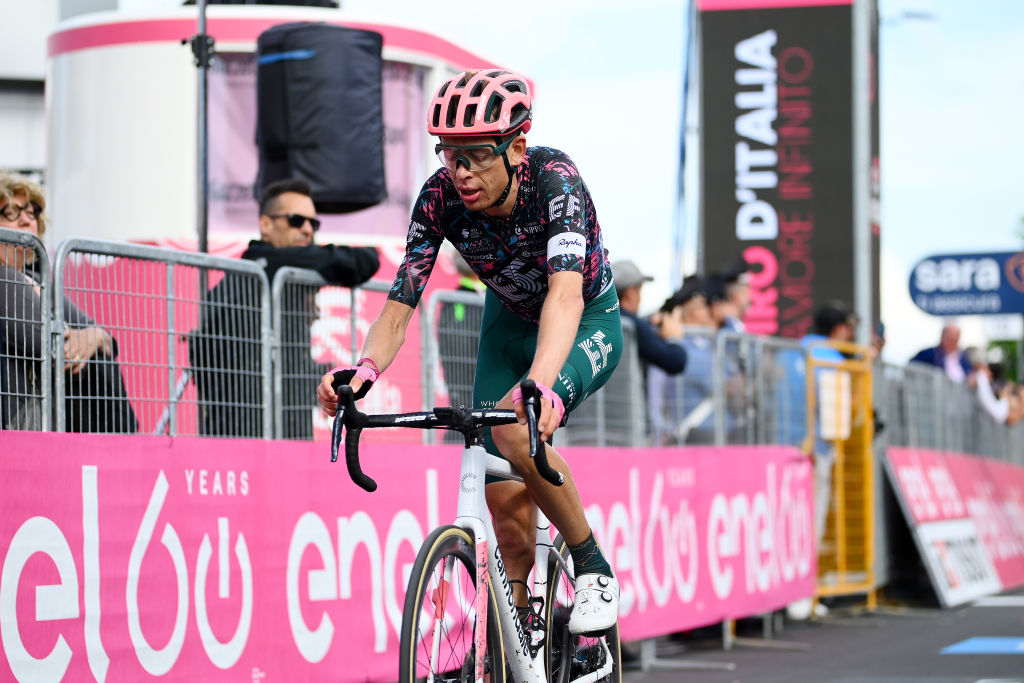
The rangy British climber comes into the Vuelta with his GC chances slightly downgraded after a relatively disappointing 9th place at the Giro, due to a couple of bad days, particularly at the Blockhaus. Since then he was part of the COVID-induced exodus at the Tour de Suisse before taking a break and building up for the second half of the season.
He has raced the most out of anyone on this list, with nine race days since the Ordiziako Klasika on July 25. He hasn't set the world alight, with 31st there followed by 52nd overall at the Vuelta a Castilla y Leon, a DNF at Circuito Getxo, and 23rd overall at Vuelta a Burgos. But still, he was ninth on the final summit finish in Burgos, at least reminding people he was in the conversation.
EF Education-EasyPost endured a horrible opening team time trial, leaving Carthy well on the back foot as the race heads to Spain.
Carthy has clawed back the lost time over the course of the stages that have followed and is now up to 15th on GC, 5:58 down on Evenepoel. The big climbs of the third week suit his style and he could break into the top ten if he rides at his best level.
Katy Madgwick is a freelance writer and broadcaster, covering multiple disciplines across both men's and women's pro cycling. Head of Creators at Domestique Cycling, Katy has written for a broad range of publications, and is a regular contributor to Cyclist Magazine, Cyclingnews, TNT Sports and The Roadbook Cycling Almanack.
On the broadcast side, she is a co-host of the On Yer Bike podcast, occasional contributor to BBC Radio, and features on CADE Media's Pro Show podcast for the first time in 2025.
She is a lover of all things French and a cyclo-cross obsessive, and probably ought to get on her actual bike more often.
